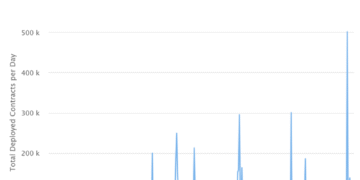Overview of the Smart Cities Market
The global smart cities market is rapidly evolving as urban centers worldwide embrace digital technologies to enhance livability, sustainability, and economic growth. Valued at US$ 620.5 billion in 2025, the market is projected to nearly double, reaching US$ 1,256.8 billion by 2032, growing at an impressive CAGR of 18% during the forecast period. The expansion is fueled by the increasing adoption of IoT-enabled infrastructure, AI-based analytics, and 5G connectivity, all of which streamline urban operations and resource management.
The key growth drivers include the rising need for efficient energy management, rapid urbanization, and government-led initiatives promoting digital transformation. Among the leading segments, smart infrastructure and mobility account for the largest share, as cities focus on intelligent transportation, energy grids, and waste management systems. Asia-Pacific dominates the global market, led by China, India, Japan, and Singapore, owing to their substantial investments in smart governance, public safety, and IoT-based solutions to manage growing urban populations.
Elevate your business strategy with comprehensive market data. Request a sample report now: https://www.persistencemarketresearch.com/samples/12667
Key Highlights from the Report
The smart cities market is expected to grow at a robust CAGR of 18% from 2025 to 2032.
Asia-Pacific holds the largest market share due to rapid digitalization and government-backed infrastructure programs.
IoT and AI integration are driving innovation across energy, mobility, and governance systems.
Smart infrastructure remains the leading market segment, driven by energy-efficient and sustainable city designs.
Increasing public-private partnerships (PPPs) are catalyzing large-scale urban modernization projects.
By 2030, nearly 60% of the global population is expected to reside in urban areas, demanding smarter infrastructure solutions.
Market Segmentation
The smart cities market can be segmented based on component, application, and end-user. On the component level, the market is divided into hardware, software, and services. Software solutions, including data analytics, AI-powered decision support, and IoT platforms, dominate this segment, providing the backbone for smart city ecosystems. Meanwhile, hardware-such as sensors, smart meters, and connected devices-supports real-time data collection and system automation, enhancing operational efficiency.
By application, the market encompasses smart transportation, smart governance, energy management, public safety, healthcare, and waste management. Among these, the smart mobility segment leads the market, fueled by innovations in electric vehicles (EVs), connected public transportation, and real-time traffic management. The energy management segment also exhibits substantial growth, driven by the integration of smart grids, renewable energy sources, and demand-response technologies aimed at minimizing carbon footprints and optimizing resource consumption.
Read More: https://www.persistencemarketresearch.com/market-research/smart-cities-market.asp
Regional Insights
Asia-Pacific remains at the forefront of the smart cities revolution, driven by extensive investments in urban digitalization and sustainable infrastructure. China and India are implementing ambitious national programs, such as China’s “New Smart City Initiative” and India’s “Smart Cities Mission,” which focus on enhancing connectivity, security, and citizen engagement. This region’s technological ecosystem-supported by rapid 5G deployment-positions it as the global hub for smart city innovations.
In North America, countries like the United States and Canada are prioritizing smart energy management, cybersecurity, and urban mobility. Government agencies and tech firms collaborate to modernize infrastructure through digital twins, AI-powered analytics, and sustainable design. Meanwhile, Europe continues to champion regulatory frameworks emphasizing environmental sustainability, particularly in cities such as Amsterdam, Copenhagen, and Barcelona, which are models for carbon-neutral and digitally connected urban environments.
Market Drivers
The growth of the smart cities market is propelled by rising urbanization and the increasing demand for sustainable infrastructure. As global populations migrate toward urban areas, cities face mounting challenges in managing energy, transportation, and waste. Smart technologies-particularly IoT, AI, and big data analytics-are enabling city planners to make data-driven decisions that improve efficiency and reduce costs. Government programs promoting smart city frameworks and sustainability policies are accelerating market adoption worldwide.
Additionally, the integration of 5G networks facilitates real-time communication between sensors, vehicles, and systems, improving responsiveness and coordination. The increasing need for public safety and efficient mobility has further boosted investments in smart surveillance, intelligent traffic systems, and connected transport infrastructure. The COVID-19 pandemic also underscored the importance of digital readiness, prompting cities to invest in technologies that enhance resilience and remote service delivery.
Market Restraints
Despite the promising outlook, the smart cities market faces several challenges and constraints. High initial capital investment and long payback periods often deter smaller municipalities from adopting smart infrastructure solutions. The cost of implementing IoT sensors, cloud systems, and AI analytics remains significant, particularly in developing economies. Additionally, interoperability issues between different platforms and vendors create integration challenges.
Data privacy and cybersecurity risks represent another major restraint. The vast data collected from connected devices and citizens requires robust security frameworks to prevent breaches and misuse. Concerns about surveillance, ethical data use, and transparency may also slow adoption rates. Furthermore, inadequate regulatory support and the lack of skilled professionals capable of managing complex digital ecosystems remain obstacles in many emerging markets.
Market Opportunities
The future of the smart cities market presents immense growth opportunities across multiple domains. The increasing deployment of AI and machine learning in predictive analytics can revolutionize energy management, traffic control, and public safety systems. There is also a growing focus on smart governance, where digital platforms enhance citizen engagement and service delivery through transparency and real-time feedback mechanisms.
Sustainability-focused projects-including smart water management, waste recycling, and renewable energy integration-offer lucrative prospects for technology providers and urban planners. Emerging economies in Latin America, Africa, and Southeast Asia are witnessing rising investments in smart urban infrastructure, supported by international collaborations and PPPs. Moreover, the growing adoption of digital twins and blockchain technologies will redefine how cities plan, simulate, and secure their infrastructure systems in the coming decade.
Do You Have Any Query Or Specific Requirement? Request Customization of Report: https://www.persistencemarketresearch.com/request-customization/12667
Reasons to Buy the Report
✔ Gain in-depth insights into the global smart cities market trends, size, and forecast up to 2032.
✔ Understand the key drivers, restraints, and opportunities influencing market dynamics.
✔ Access detailed regional and segmental analyses to identify high-growth investment areas.
✔ Evaluate the competitive landscape with company profiles, recent developments, and strategic initiatives.
✔ Stay ahead of market shifts with expert insights into emerging technologies and evolving regulatory frameworks.
Frequently Asked Questions (FAQs)
How Big is the Smart Cities Market?
Who are the Key Players in the Global Smart Cities Market?
What is the Projected Growth Rate of the Smart Cities Market from 2025 to 2032?
What is the Market Forecast for the Smart Cities Industry by 2032?
Which Region is Estimated to Dominate the Smart Cities Industry through the Forecast Period?
Company Insights
Key players operating in the global smart cities market include:
Cisco Systems, Inc.
Siemens AG
IBM Corporation
Huawei Technologies Co., Ltd.
Schneider Electric SE
Microsoft Corporation
Hitachi, Ltd.
Ericsson AB
Oracle Corporation
ABB Ltd.
Recent Developments:
In 2024, Siemens AG launched its City Performance Tool 2.0, enabling municipalities to evaluate and reduce carbon emissions through AI-driven simulations.
Cisco Systems partnered with Dubai Municipality to expand its Connected City Infrastructure program, deploying IoT-based traffic and energy management systems for enhanced urban efficiency.
Conclusion
The global smart cities market is entering an era of exponential growth as cities worldwide pursue smarter, safer, and more sustainable living environments. With technological advancements in IoT, AI, and 5G reshaping how urban systems function, governments and enterprises are investing heavily in intelligent infrastructure and data-driven governance. The integration of sustainability and digital transformation lies at the heart of this evolution, promising to create cities that are not only connected but also environmentally conscious and citizen-centric.
As the market marches toward US$ 1,256.8 billion by 2032, the convergence of innovation, policy, and urban planning will define the next generation of metropolitan development-where technology and sustainability coalesce to improve quality of life across the globe.
Related Reports:
Spatial Computing Market https://www.persistencemarketresearch.com/market-research/spatial-computing-market.asp
LED Video Wall Display Market https://www.persistencemarketresearch.com/market-research/led-video-wall-display-market.asp
Smart Camera Market https://www.persistencemarketresearch.com/market-research/smart-camera-market.asp
Contact Us:
Persistence Market Research
Second Floor, 150 Fleet Street,
London, EC4A 2DQ, United Kingdom
USA Phone: +1 646-878-6329
UK Phone: +44 203-837-5656
Email: sales@persistencemarketresearch.com
Web: https://www.persistencemarketresearch.com
About Persistence Market Research:
At Persistence Market Research, we specialize in creating research studies that serve as strategic tools for driving business growth. Established as a proprietary firm in 2012, we have evolved into a registered company in England and Wales in 2023 under the name Persistence Research & Consultancy Services Ltd. With a solid foundation, we have completed over 3600 custom and syndicate market research projects, and delivered more than 2700 projects for other leading market research companies’ clients.
Our approach combines traditional market research methods with modern tools to offer comprehensive research solutions. With a decade of experience, we pride ourselves on deriving actionable insights from data to help businesses stay ahead of the competition. Our client base spans multinational corporations, leading consulting firms, investment funds, and government departments. A significant portion of our sales comes from repeat clients, a testament to the value and trust we’ve built over the years.
This release was published on openPR.















